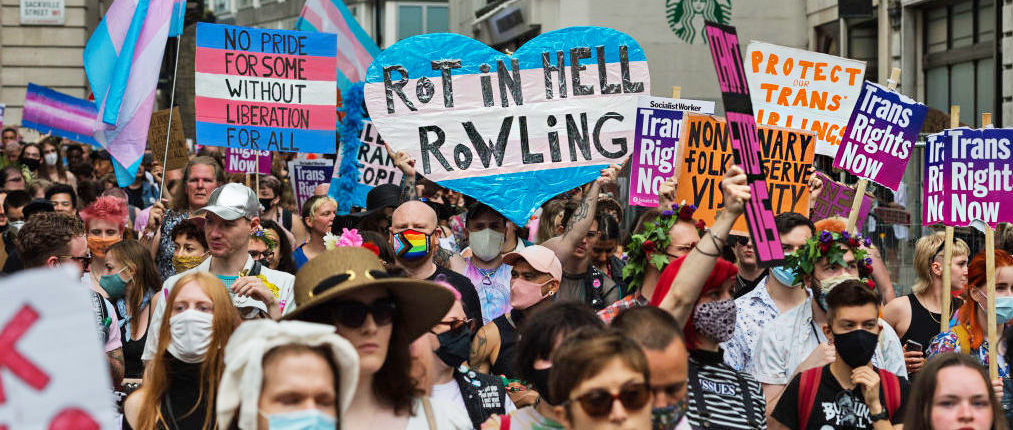There’s a piece in Julia Galef’s marvellous book The Scout Mindset about when beliefs become identities. Beliefs aren’t solely our best guesses about the underlying reality of the world: they are also markers of who we are. That’s obvious with things like politics and religion, but it can be true about almost anything: people identify strongly as free-market capitalists, or as breastfeeding advocates, and often it’s not just because they believe those are the best ways of achieving a certain goal, but because they identify with the groups that hold those beliefs. And if a belief becomes an identity, it’s much harder to abandon in the face of new evidence.
Galef suggests that there are ways of detecting when a belief has become an identity. Saying “I believe” is one. (“I believe that women are changing the world!” as opposed to “Women are changing the world.”) Getting annoyed when an ideology is criticised is another. And, she says, when you feel schadenfreude when an ideological group gets humiliated, that suggests you’re viewing the issue as “a fight between people, not ideas”. Relatedly, if you’re describing people as social justice warriors, the wokerati, neckbeards, anything like that, it’s a risk indicator that you’ve allowed the belief to congeal into an identity..
Yanis Varoufakis, the Greek economist and politician, tweeted a particularly controversial take recently:
On the day liberal-neocon imperialism was defeated once and for all, DiEM25's thoughts are with the women of Afghanistan. Our solidarity probably means little to them but it is what we can offer – for the time being. Hang in there sisters!
— Yanis Varoufakis (@yanisvaroufakis) August 15, 2021
People have rightly pointed out that this is a pretty grim tweet — “hang in there sisters!” as though they’re going through a messy divorce rather than facing life under a misogynistic theocracy. But it’s also pretty obvious that when he sent it, at least, he was more interested in the fight with his own outgroup than he was in the actual women whose lives are being overturned, hence the schadenfreude at the defeat of “liberal neocon imperialism”. His belief in Left-wing politics and economics has become part of his identity, as well as simply a belief in what’s best for the world, and in this case it led him to do a pretty stupid tweet.
The trouble is that identities are useful: they carry information. If someone doesn’t eat meat, it’s nice and straightforward for them to say “I’m a vegetarian” when people ask for their dietary requirements. The trick, for Galef, is to “wear your identity lightly” — to see it as a useful description, rather than a flag which tells the world who you are. So it might be a good way of giving people a rough description of your politics to say “I’m a feminist” or “I’m a libertarian”, but to remember that you don’t have to defend every other person who uses those labels, or to be happy when rival groups have setbacks.
“Someone who holds her political identity lightly is happy when her party wins an election,” writes Galef. “But she’s happy because she expects her party to do a better job leading the country, not because the other side suffered a humiliating defeat. She’s not tempted to taunt the losers.”
The thing is, it’s easy to see in other people. What’s interesting is whether you can detect it in yourself, and it’s much harder. I rarely use epithets, I think: “Corbynistas”, perhaps, maybe “antivaxxers”; I call non-nerds “wambs”; I suppose I identify as a sort of centrist science-y nerd. I’m sure I have other beliefs that are more about my own self-image than about trying to understand the world.
But if they ever drive me to start telling Afghan women to “hang in there sisters!”, do let me know that I’ve crossed a line.











Join the discussion
Join like minded readers that support our journalism by becoming a paid subscriber
To join the discussion in the comments, become a paid subscriber.
Join like minded readers that support our journalism, read unlimited articles and enjoy other subscriber-only benefits.
Subscribe